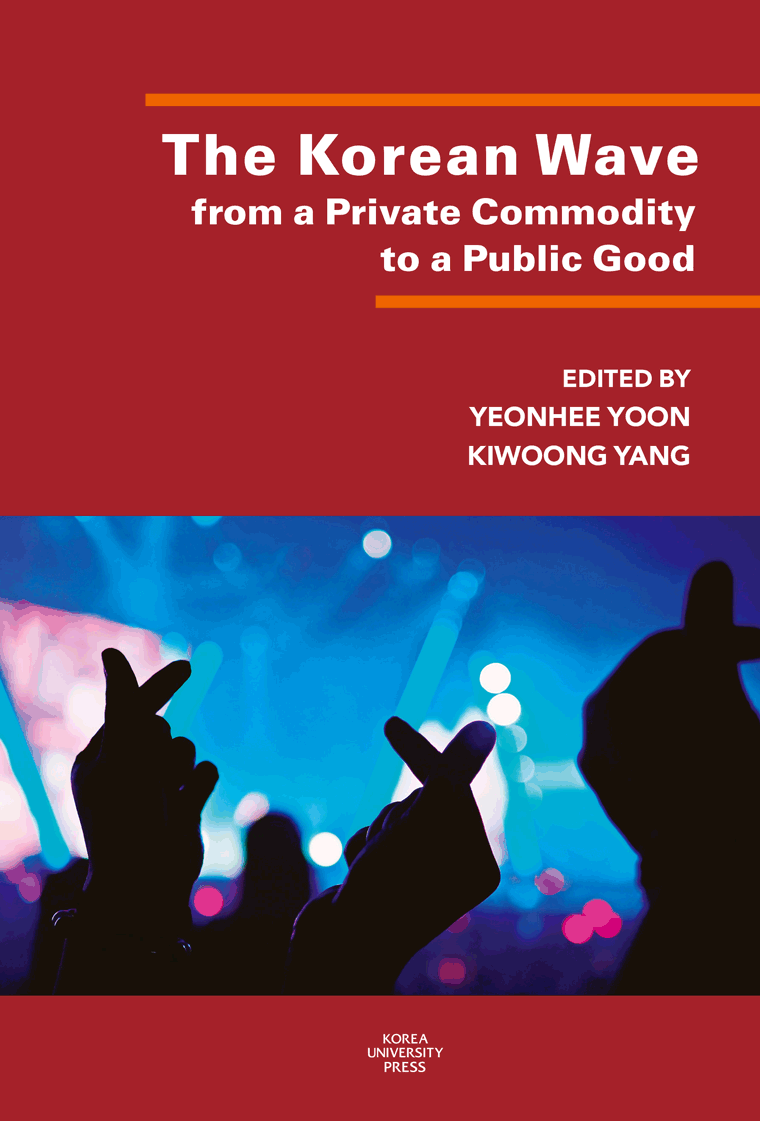The title of this book, The Korean Wave: from a Private Commodity to a Public Good, refers to the idea that the Korean Wave has now crossed its nation’s borders and become an international public good. Because the Korean Wave has so far surpassed its national borders to become a subject of global attention, we consider the Korean Wave through the lenses of power, interest, identity, politicization, and the “anti-Korean wave”.
“In this context, we are proud to have supported the work that has led to this publication. We congratulate the editors on promoting a unique interdisciplinary perspective on popular culture and international relations, featuring contributions by both humanists and social scientists, and focusing on a hugely signifcant transcultural phenomenon – the Korean Wave – that originated in Asia yet spread across the globe. The questions of identity, interest, and power raised by this publication, based on a series of conferences held on our campus, are as signifcant as they are innovative. I hope you, the reader, will be inspired by this collection to pursue your own inquiries and further develop the study of Korean culture in global context.”
— Michel Hockx, Director of Liu Institute for Asia and Asian Studies, University of Notre Dame
Foreword
Michel Hockx (University of Notre Dame)
Preface
Yeonhee Yoon (University of Notre Dame) and Kiwoong Yang (Hallym University)
About the Contributors
Part 1: K-Pop as a Gateway to Korea
Chapter1
Exuberant Hallyu and Formidable Students: Two Faces of South Korean Youth Culture
Susan D. Blum (University of Notre Dame)
Chapter 2
Korea’s Place in the World: Its Effort to Enhance Soft Power
Jaewoong Lee (Ministry of Foreign Affairs, Republic of Korea)
Part 2: Identity-dimension of the Korean Wave
Chapter 3
(Re)Imagined Communities: Korean Diaspora, Identity, and Pop Culture
Ji-Yeon Jo (University of North Carolina-Chapel Hill)
Chapter 4
Drama Consumption in Transnational South Korea: Korean American Women and Intraethnic Othering
Adrienne Lo (University of Waterloo), Megan Rim (University of Michigan), Lee Jin Choi (Hongik University), and Nancy Abelmann (University of Illinois at Urbana-Champaign)
Part 3: Interest-dimension of the Korean Wave
Chapter 5
A Hybrid Model of Bridging Nation Branding and Country Image: A Case of the Korean Wave
Jaebeom Suh (Kansas State University)
Chapter 6
Yet to Crest: The Korean Wave and Korean Language Learning
Yeonhee Yoon (University of Notre Dame)
Part 4: Power-dimension of the Korean Wave
Chapter 7
The Anti-Korean Wave in Japan: Identity Clash
Yeonhee Yoon (University of Notre Dame)
Chapter 8
The Korean Wave as a Soft Power
Kiwoong Yang (Hallym University), Maddalena Ciesa (Max Mara)
Part 5: A Rivalry with the Korean Wave
Chapter 9
Between Fans: History and National Identity in Online Debates on Axis Powers Hetalia
Kathryn Hemmann (George Mason University)
Chapter 10
Lost and Found in “Cool Japan”
Heather Bowen-Struyk (DePaul University)
Appendix: Trends of the Korean Wave
The Korean Wave in the World Seen through Statistics
Kiwoong Yang, Kyungeun Lee and Jeounghwa An (Hallym University)
Index
저자 : Yeonhee Yoon, Kiwoong Yang
Yeonhee Yoon is a professor of the practice of the Korean Language and Culture at the Department of East Asian Languages and Cultures and faculty fellow at the Liu Institute of Asia and Asian Studies at the University of Notre Dame. She received her Ph.D. in Korean Linguistics from the University of Hawai’i at Manoa. Her research interests include Intercultural Pragmatics, Second Language Acquisit... more





